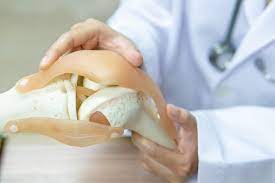Imagine being a detective. Your clues aren’t fingerprints or suspiciously discarded gum, but pain points and mobility issues. As an orthopedic surgeon, that’s my reality. Each day, I unravel mysteries hidden in bones and joints. Today, we’re diving into how we crack these cases. We’re exploring how conditions get diagnosed, from common fractures to more complex ones, needing procedures like Tenafly arthroscopic knee surgery. It’s a journey of art and science, a blend of experience and cutting-edge technology. And it starts with a simple conversation.
The Art of Listening
First off, we listen. We pay attention to your stories, your descriptions of pain, and your difficulties with movement. We empathize and understand that these are not just symptoms – they are hindrances in your journey towards a fulfilling life.
The Science of Examination
Next, we examine. As experts, we look for signs that might not be visible to untrained eyes. Swelling, tenderness, or deformity can all be telling signs. We move your limbs and feel for resistance. We ask you to walk, sit, and stand – all in an effort to decode the signs your body is giving us.
Taking a Closer Look
Then, we dive deeper. We use technology like X-rays, CT scans, and MRIs – non-invasive procedures that give us a clearer picture of what’s happening inside. It’s like using a magnifying glass on a complex puzzle.
The Role of Surgery
Frequently, we can diagnose without resorting to invasive measures. But when needed, we don’t hesitate. For instance, a procedure like arthroscopic knee surgery allows us to look directly inside your knee in a minimally invasive manner.
From Diagnosis to Treatment
Once the mystery is solved, we share the findings. We explain the condition, discuss options, and develop a treatment plan. We work together to restore your health and get you back on your feet.
In conclusion, the process of diagnosing orthopedic conditions is a fascinating journey. It’s an intricate dance between human empathy and modern technology. It’s about understanding you, your body, and your needs. And it all starts with a simple conversation.

